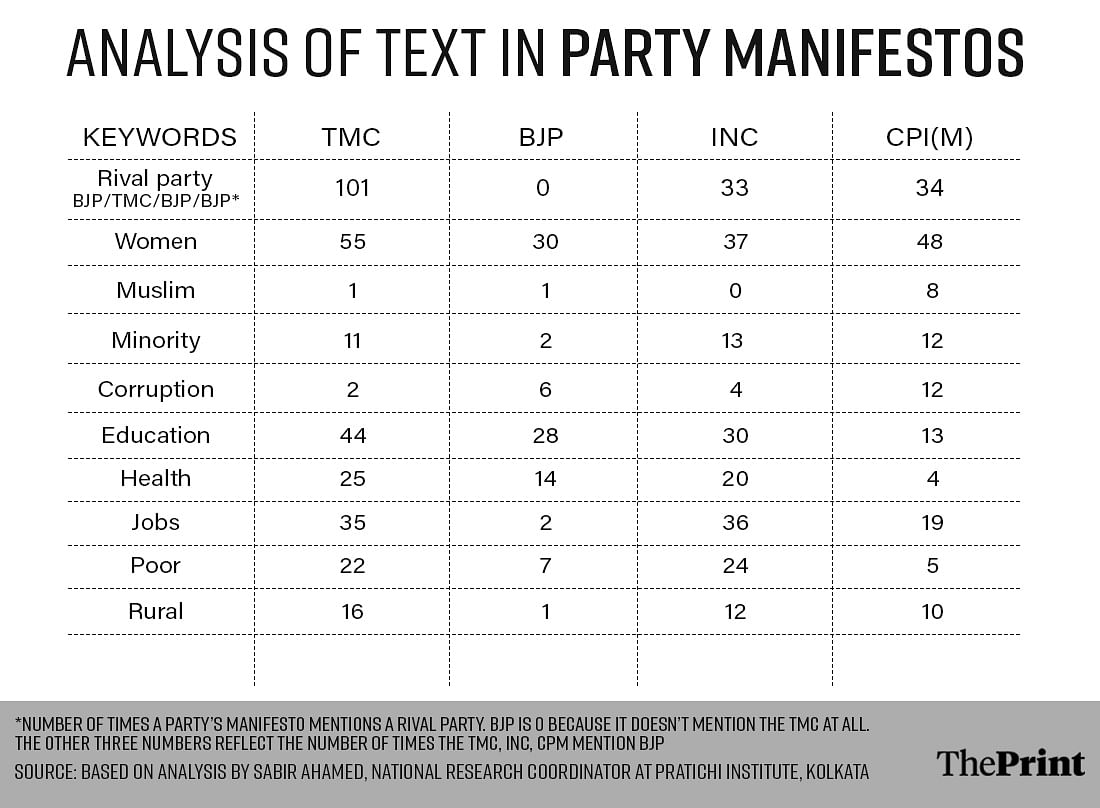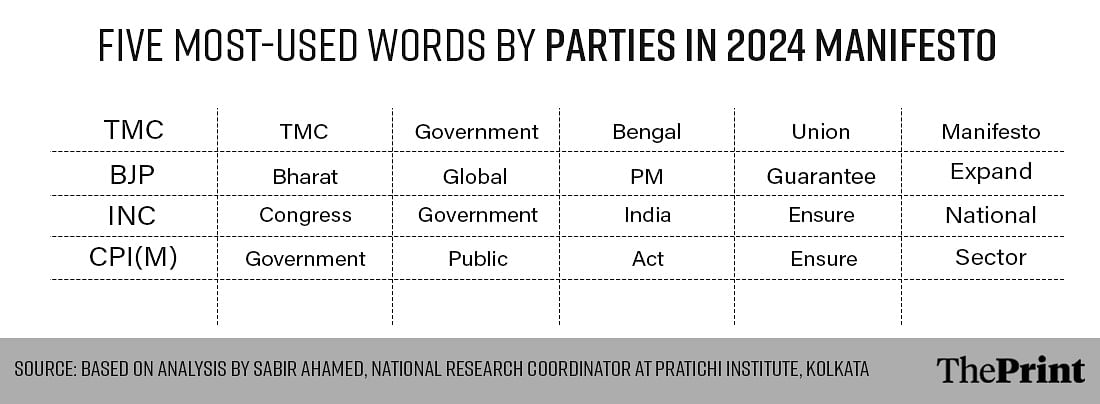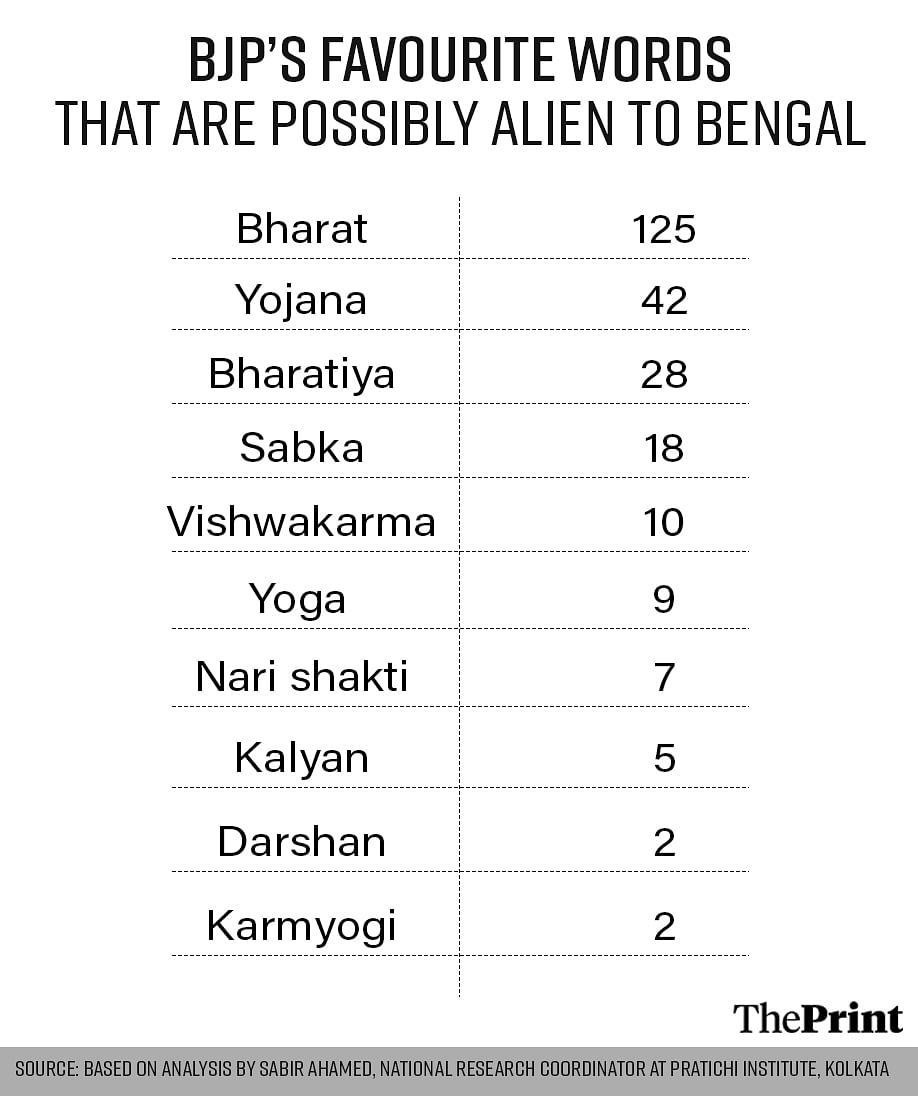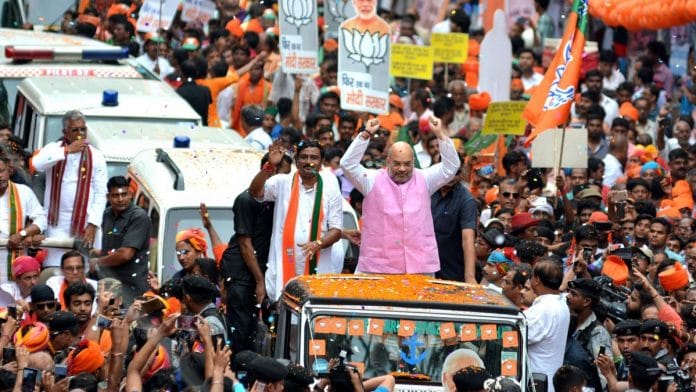Unless Delhi BJP leaders learn to speak more than just token lines in Bengali and develop an understanding of the Bengali ethos, sensibility, and humor, I cannot see the party making a dent in this state. Prime Minister Narendra Modi’s ‘Didi o Didi’ remark went beyond language and resonated — negatively — for the BJP. However, other barbs by national BJP leaders tend to get lost in translation for the people of Bengal.
Words like ‘ghuspethiye’ (intruders) or ‘tushtikaran’ (appeasement) resonate very little here, nor do phrases like ‘mangalsutra’ or Amit Shah’s latest “mullah, madrasa, mafia” line, his distortion of Mamata Banerjee’s signature ‘Maa, Mati, Manush’ slogan. In Bengal, the word used for Islamic teachers or religious leaders is ‘Imam’; madrasas are recognised as legitimate educational institutions; and while ‘mafia’ is an English word, it is not part of the local political lingo. The Hindi words used by BJP leaders do not carry the same weight or meaning in the Bengali context.
Like it or not, Bengalis are different from the ‘mainstream’ north India and if the BJP really wants seats from Bengal to cross the 272 mark, let alone ‘400 paar’, the party needs to re-evaluate its strategy. There is still time. Five phases are left in the 2024 election.
Noticeably, Chief Minister Banerjee makes sure she keeps the conversation local. She will talk about the school job scam much more readily than mangalsutra. She will talk about houses and NREGA money, which she accuses BJP of denying Bengal’s people, instead of using words like ghuspethiye and tushtikaran. The controversy over the difference in vote percentage shared by the Election Commission of India (ECI) is something she will address but I doubt if Karnataka’s Prajwal Revanna will ever enter the political discourse here. She wouldn’t raise it because it would remind people of Sandeshkhali. But even otherwise, sexual malfeasance is not a conversation point in Bengal.
But I may be speaking too soon. All eyes are now on how the allegation of molestation against West Bengal governor CV Ananda Bose, levelled by a staff member of Raj Bhavan who has lodged an FIR, unfolds. The governor has dismissed the allegation as “engineered narratives” and suggested someone may be trying to seek “some election benefits” by maligning him.
But the conclusions drawn above are not out of the blue. They are partially based on the analysis by Sabir Ahamed, national research coordinator at Pratichi Institute in Kolkata which is chaired by Amartya Sen. Ahamed studied the 2024 election manifesto of four parties in Bengal—TMC, BJP, Congress, and CPI(M).
Here is what his analysis revealed:
TMC mentions the words ‘women’, ‘education’, and ‘health’ most frequently, more often than BJP, INC, or CPI(M).
The BJP manifesto mentions ‘women’, ‘jobs’, and ‘rural’ the least number of times.
The Congress manifesto tops in the mention of ‘minority’, ‘jobs’, and ‘poor’.
The CPI(M) manifesto uses the word ‘corruption’ maximum number of times.
A comparison of most frequently used words highlights one fact: the BJP’s choices are the most predictable. They are ‘Bharat’, ‘Global’, ‘PM’, ‘Guarantee’, and ‘Expand’.
The analysis also lists Sanskritised words in the BJP’s manifesto that are deemed alien to Bengal.



Also read: BJP shouldn’t fight BJP in West Bengal. And repeat 2021 mistakes in 2024
What BJP must do
The BJP must take two steps to fix the problem. The first is to empower the local leadership and authorise them to set the agenda in election season. The party has taken lessons from 2021. Ahead of the assembly election then, it emerged that the local leadership was sidelined while leaders from outside Bengal. who had set up camp in Kolkata, dominated the discourse. Among the most visible were Kailash Vijayvargiya, Arvind Menon, Babul Supriyo (now in TMC), as well as Bhupendra Yadav, Dharmendra Pradhan, and Himanta Biswa Sarma.
Local leaders like Dilip Ghosh, then-state BJP president and the architect of the 2019 victory on 18 seats, was out of favour and under pressure. Suvendu Adhikari had just joined the party. So, the “outsiders” ruled the roost. Alien to Bengal’s political ethos and culture, their domination of the discourse misfired and they failed to deliver Amit Shah’s target of ‘200 paar’.
This time, BJP observers coming to Kolkata are almost invisible. And that was a deliberate decision. Heavy-weights are flying in and out, of course, but observers posted in Kolkata and pulling strings have been advised to stay below the radar. The team comprises, among others, Sunil Bansal, Mangal Pandey, Arka Lakra, and Amit Malviya. The last is only on X.
Suvendu Adhikari has been given the leading role and at least 30 of his recommendations were accepted as candidates. Amid reports of fractious factions, the current state president of the BJP, Sukanta Majumdar, has managed to hold his place and peace.
All this is very well. But national BJP leaders flying in and out of the state would do well to take a crash course in Bengali—in fact, all things Bengali, beyond stereotypes like rosogolla and ami tomake bhalobashi. That includes learning words like hodol kutkut and a dash of Abol Tabol, the masterly book of nonsense verse by Satyajit Ray’s father, Sukumar Ray.
For good measure, especially in this heat wave, a dash of pantabhaat with some lonka bhaja and alu bhorta (congee rice, fried red chilli, and mashed potato) could go a long way in Bengalifying the BJP and giving it a shot at winning Bengal.
The author is a senior journalist based in Kolkata. She tweets @Monideepa62. Views are personal.
(Edited by Prashant)






